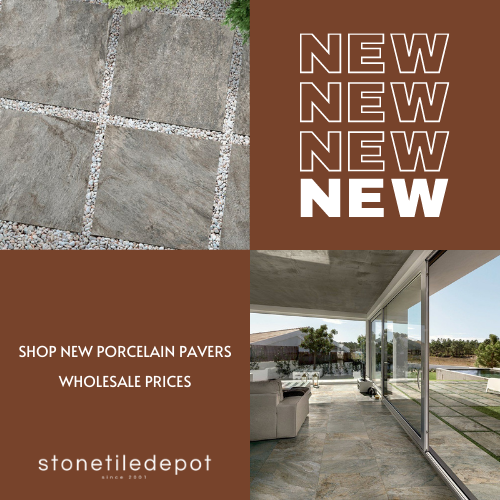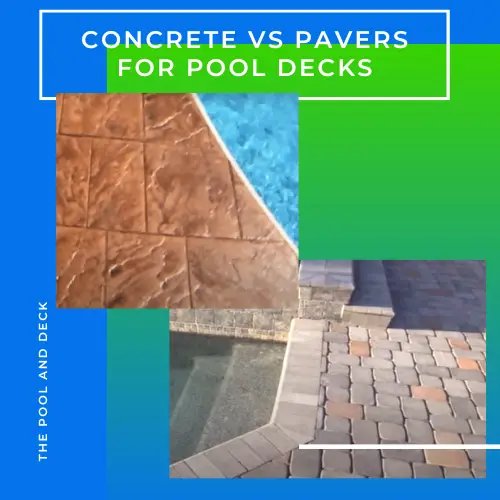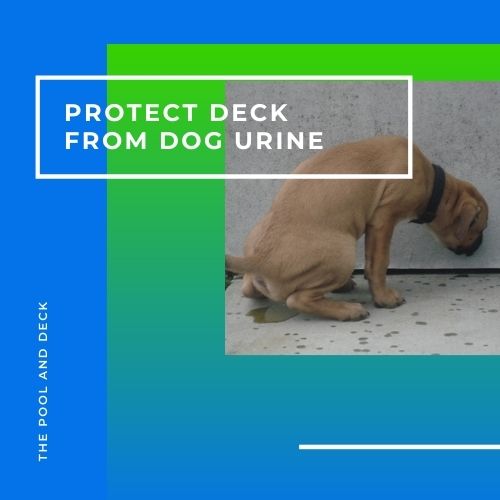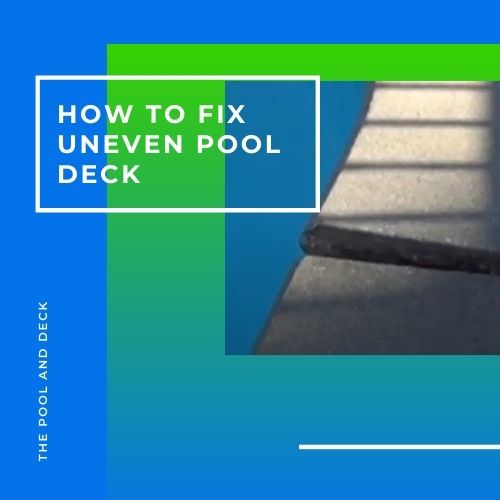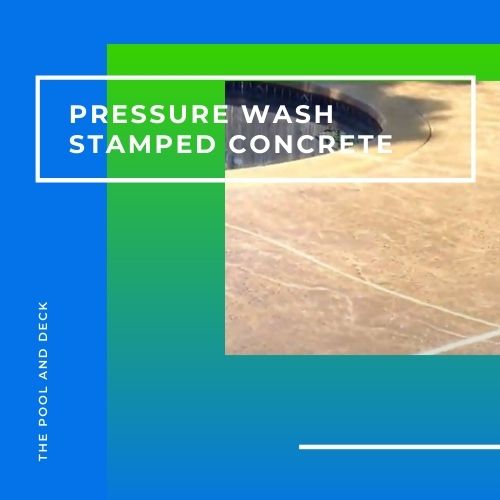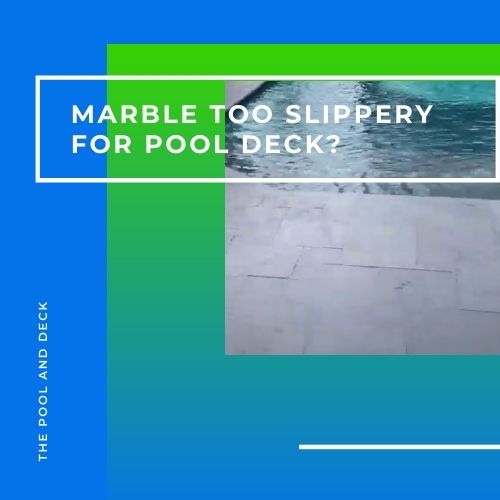How Thick Should A Concrete Pool Deck Be? (Important!)
As an Amazon Associate, I earn from qualifying purchases.
Table of Contents
How Thick Should a Concrete Pool Deck Be?
Truth be told, you probably spend more time on the pool deck than in the pool. So, if you are planning to install an inground pool in your backyard this summer, do give the due importance to the pool deck design & construction. A question asked by many “to be” pool owners is, “How Thick Should A Concrete Pool Deck Be”?
Your concrete pool deck is essentially a concrete slab on grade. Concrete slab on grade should be a minimum of 4” thick. For adequate strength & durability, the concrete pool deck should be 6”, or even 8” thick, with rebar reinforcement.
The thickness of the concrete pool deck is important as it has to support the weight of the swimmers lounging on the deck, deck furniture, deck structures (if any) and other pool related equipment & stuff.
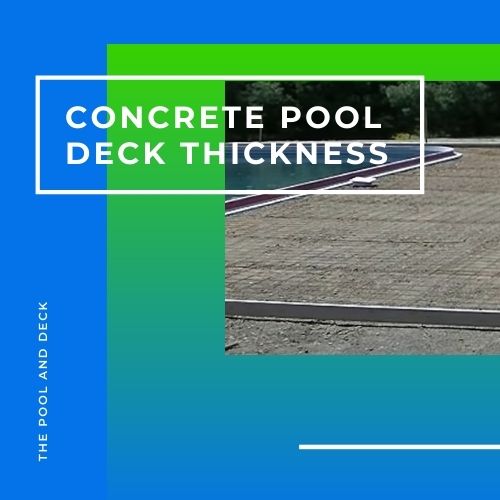
Does a Concrete Pool Deck Need Rebar?
A concrete slab does not need rebars if it is 4” or less in thickness. You may however, reinforce it using fiber mesh or steel wire mesh. Rebar is certainly required if the concrete slab is 6” or thicker.
The rebar or any other reinforcement is necessary to compensate for the poor tensile strength of concrete. The compressive strength of concrete is very high.
Compressive Strength is the ability of concrete to withstand load that is pressing into it. Tensile strength, on the other hand, is the ability of concrete to resist breaking or cracking under tension. In simpler words, high tensile strength is flexibility and low tensile strength is brittleness.
Concrete with a compressive strength of 4000 psi may have tensile strength of just 400 psi.
Rebar or any other type of reinforcement in concrete pool deck is required mainly to handle the flexural or tensile stresses. Such stresses may be caused by uneven shifting of the grade below or large temperature fluctuations.
IMPORTANT TIP: Rebars should be laid out in a grid pattern and raised above the compacted surface by putting them on “chairs”.
Just laying them on the compacted surface does not help at all. They will not add any strength to the concrete slab.
What Type of Concrete Is Used for Pool Decks?
You must use the type of concrete that will result in adequate strength to your concrete pool deck.
The 2018 International Residential Code (IRC), Table R402.2, specifies that the minimum specified compressive strength of concrete shall be not less than 3500 psi under severe weathering potential.
The compressive strength of the concrete slab will depend mostly on the following six factors, related to the concrete mix, grade preparation and curing.
- Water – Cement Ratio
- Cement – Aggregate Ratio
- Quality of Ingredients (Cement, Water, Aggregates etc.)
- Concrete Additives
- Compaction
- Curing Conditions
Water to Cement Ratio in the concrete mix is possibly the most important factor. As a thumb rule the compressive strength of concrete goes up as the water to cement ratio goes down. A water to cement ratio of 0.5 is ideal.
Do You Have to Seal Concrete Around a Pool?
There are several options when it comes to finishing the concrete slab of the pool deck.
- Bare concrete (brushed or stamped)
- Coatings
- Overlays (pavers or tiles)
Irrespective of the option you choose, you must seal the concrete. Concrete is porous and is made up of capillaries. Pool & rain water, along with chemicals will get into these pores and degrade the concrete. A combination of penetrating and topical sealer protects the concrete.
Concrete is made up of fine particles (cement), coarse aggregates (sand and gravel), reinforced with steel rebars for tensile strength. Concrete is a strong durable building material, but sadly it does disintegrate over time.
Trowelling is a standard practice, after pouring the concrete mix for the pool deck. As a result the water and the finer cement particles rise to the surface, giving it a smooth appearance. Unfortunately, the smooth surface is also the weakest, structurally.
Exposed concrete pool decks can degrade due to:
Abrasion
Even foot traffic is abrasive. You may also have pool furniture and BBQ grills dragged on the pool deck. Power washing will also abrade the pool deck surface. Abrasion will cause the soft weak layer of cement on the pool deck surface to break down and pulverize into dust.
A topical concrete sealer will protect the soft top cement layer from abrasive forces.
Weathering
Concrete surfaces also disintegrate by a process called scaling. Water within the concrete expands and contracts as the temperature changes. This puts physical pressure on the cement causing it to break down into dust.
Water seepage into the concrete pores can also result in the corrosion of the steel reinforcement bars and a reduction in the tensile strength of the concrete. The problem is compounded in coastal areas because of salt in the water & moisture.
A penetrating sealer will seep into the tiny pores (capillaries), fill them up, solidify and block them, so that water can not enter..
Chemical Action
Cement is alkaline and the coarse aggregates (sand & gravel) have silica. Alkali can react with active silica to form a gel. The gel can absorb water, swell and apply pressure and weaken the concrete. Weak concrete will disintegrate and crack more easily.
The impact of chemical action can also be greatly reduced by the use of a penetrating sealer.
Recommended Concrete Sealers
Best Penetrating Concrete Sealer
The Armor SX5000 WB is a water-based Department of Transportation approved Silane-Siloxane penetrating concrete sealer. It penetrates deep into the substrate where it chemically reacts to form a hydrophobic barrier within the pores that reduces the absorption of water by up to 95%. Protects concrete, from within, without changing the look or feel of the surface.
Foundation Armor SX5000 Water Based Silane Siloxane Penetrating Concrete Sealer
Best Topical Concrete Sealer
The Armor AR350 is a solvent based acrylic wet look sealer that is designed to seal, enhance, and protect a variety of interior and exterior concrete and concrete paver surfaces.
The Armor AR350 penetrates deep into the surface where it chemically bonds to the pores of the concrete and pavers, creating a long lasting, non-yellowing, breathable finish that enhances dull or faded surfaces by creating a darkened wet look, and low gloss finish.
Foundation Armor AR350 Solvent Based Acrylic Wet Look Concrete Sealer
Thank you very much for reading the post. I do hope you found it informative and helpful.

